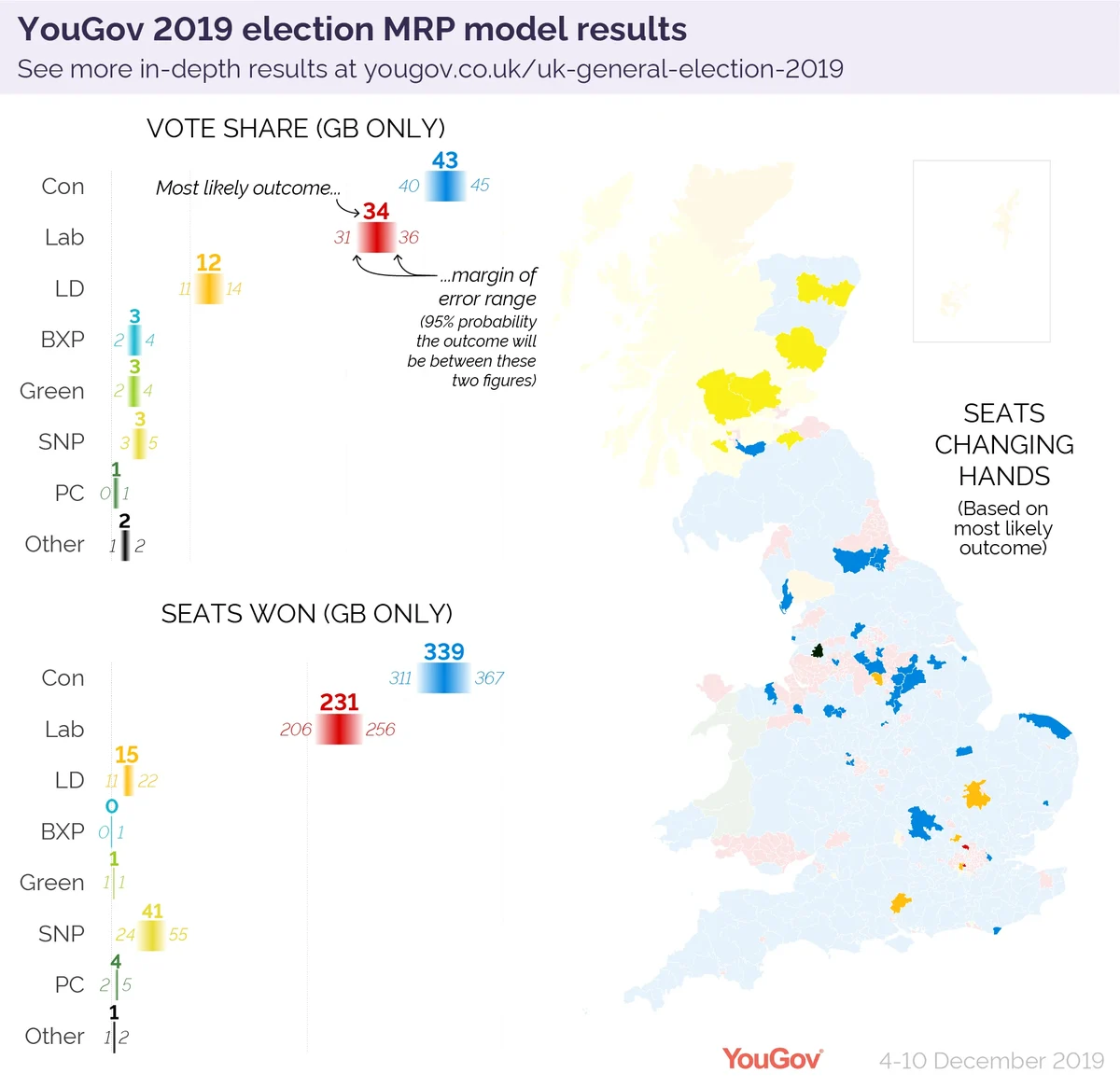Most Tory gains likely in the north, in areas that voted Leave, while they are performing less well in the south, London and Scotland
YouGov’s latest and final general election MRP model shows the Conservative Party headed for an overall majority. Predicted vote shares in our final poll have the Conservatives on 43%, Labour on 34%, the Liberal Democrats on 12% and the Brexit Party on 3%.
These vote shares translate into 339 seats for the Conservatives, 231 for Labour, 41 for the SNP and 15 for the Liberal Democrats - giving the Conservatives an overall majority of 28.
Like all predictions our model comes with some uncertainty, and the margin of error here could put the final number of Conservative seats from 311 to 367. This means that we absolutely cannot rule out the 2019 election producing a hung Parliament - nor can we rule out a larger Conservative majority.
Most of the Conservative gains are expected to be in the north, in urban West Midlands and former mining areas in the East Midlands and County Durham - concentrated in areas that voted to leave the EU. They are doing less well in the south and in London where our model now suggests two gains for Labour.
The Conservatives are also doing less well in Scotland than in our November MRP model and are now predicted to lose five seats, although many of these are extremely tight and could go either way.
This is a further development of the same MRP model we used in 2017 which successfully predicted a hung Parliament and surprise results in Kensington and Canterbury. It works by modelling the relationship between respondent demographics (age, gender, class or past vote) and their vote, and how this changes in different types of seat (region, marginality or incumbency). This model is then applied to the demographics and political circumstances in each seat, projecting results in each of the 632 constituencies in Great Britain.
Note that the model will be less capable in seats with very unusual political circumstances (such as Devon East, or Finchley and Golders Green) and these are reflected by bigger margins of error on our projected vote shares.
More importantly, over the last fortnight we've seen the Conservative lead and the number of seats they are projected to win gradually fall. There are two days until polls close and time for voters to change their minds.
The fieldwork for the poll was conducted between the 4th of December and this morning, based on 105,612 interviews. You can explore the constituency projections here, and read YouGov's further analysis of the poll here.
The full technical details of the model are available in our election centre.
Image: Getty










